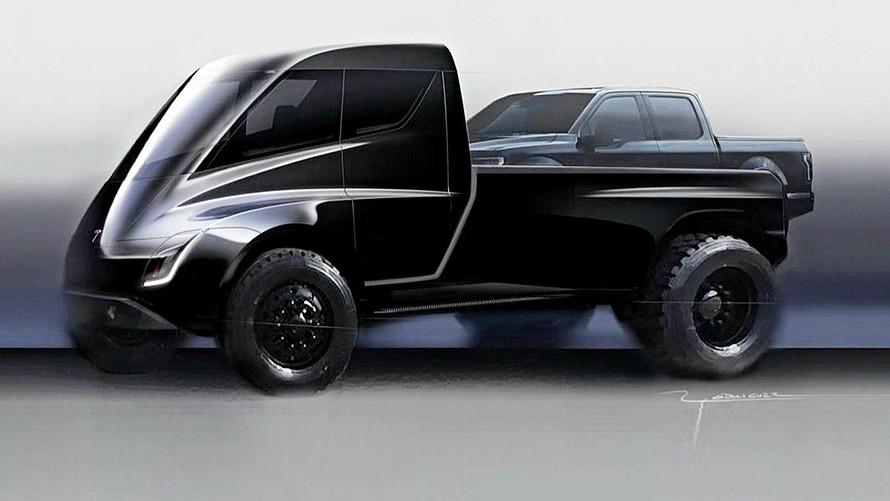Michelin and goodyear are widely considered to make the best light truck tires on the market. Both companies have a strong reputation for producing high-quality and durable tires that can handle challenging conditions.
Choosing the right light truck tires is crucial for ensuring your vehicle performs optimally in a variety of situations. Whether you’re hauling cargo, towing a trailer, or simply driving on rough roads, you need tires that can handle the challenge.
With so many different brands and types of tires available, it can be challenging to determine which ones are the best for your needs. Ultimately, the decision depends on a variety of factors, including your driving style, the conditions you typically encounter on the road, and your budget. In this article, we’ll take a closer look at some of the top light truck tire options available, and explore the key factors to consider when shopping for new tires.

Credit: www.autoweek.com
Top Brands In The Light Truck Tire Industry
A Review Of The Leading Tire Manufacturers In The Industry
If you’re searching for the best light truck tires, it’s vital to know the top-rated brands in the light truck tire industry. Here’s a roundup of some of the most renowned tire manufacturers:
- Michelin: This french tire manufacturer has been in the business for over 100 years and is a popular choice due to its reliability and longevity.
- Goodyear: This american tire manufacturer is known for producing high-quality tires for diverse vehicles. Their light truck tires offer excellent traction and stability on different surfaces.
- Bridgestone: Another japanese tire manufacturer that has been in the business for over nine decades, bridgestone offers a range of light truck tires with improved handling, better fuel efficiency, and enhanced performance.
- Continental: This german tire manufacturer has a reputation for creating durable and high-performing tires. They have a wide range of light truck tires suitable for various weather conditions.
- Pirelli: An italian tire manufacturer that’s been around for over a century and offers a range of light truck tires with excellent grip, handling and stability.
Comparison Of Each Brand’S Approach To Producing Light Truck Tires
Each brand mentioned above has a unique approach to producing light truck tires, which sets them apart in the market. Here is an overview of their methods:
- Michelin: Michelin’s primary focus is on producing durable and long-lasting tires that can withstand various weather conditions. They achieve this through their innovative tire design and focus on using high-quality rubber compounds in their manufacturing process.
- Goodyear: Goodyear holds a reputation for producing high-quality and sturdy tires with a focus on innovation. Their light truck tires are designed with innovative technology such as kevlar fiber, ensuring outstanding strength and durability.
- Bridgestone: Bridgestone’s approach to producing light truck tires is focused on delivering fuel efficiency without compromising on performance. They utilize innovative tire technologies to achieve this balance.
- Continental: Continental’s approach to producing light truck tires is centered on developing tires that can handle diverse weather conditions. They focus on using advanced rubber compounds and tread patterns to achieve this.
- Pirelli: Pirelli’s approach is centered around delivering high-performance tires that offer excellent grip and stability. They utilize innovative tire design and compounds to achieve this.
Analysis Of The Brands’ Pros And Cons
Each brand has its pros and cons when it comes to producing light truck tires. Here’s a look:
- Michelin: Pros – high durability, suits different weather conditions, better handling. Cons – expensive than other brands, requires specialized maintenance.
- Goodyear: Pros – excellent traction and stability, high-quality, sturdy tires, innovative tire technologies. Cons – tires might wear out faster than competing brands.
- Bridgestone: Pros – good fuel efficiency and performance, innovative technology. Cons – less durable than some competing brands.
- Continental: Pros – excellent handling in diverse weather conditions, durable tires. Cons – expensive than some competitors, might produce significant noise when in use.
- Pirelli: Pros – high performance, excellent grip and stability, innovative tire technology. Cons – generally more expensive than competing brands, not ideal for extreme weather conditions.
When comparing the leading tire manufacturers in the light truck industry, these brands demonstrate unique approaches that cater to different consumer preferences. We hope this article helps you make an informed decision and choose the brand that suits your needs best.
Factors To Consider When Choosing Light Truck Tires
Different Types Of Light Truck Tires Available
When shopping for light truck tires, it’s important to know the different types available in the market. Consider the following types below:
- All-terrain tires: These are perfect for suvs and light pickup trucks, thanks to their durable construction and versatility in handling different terrains.
- Highway tires: They offer a more comfortable ride, lower noise levels and better fuel economy on paved roads. They’re ideal for commuters with a daily drive to work and for long journeys on the highway.
- Mud-terrain tires: If you’re a regular off-roader, these tires are perfect for you, thanks to their aggressive tread and deep traction on mud and rocky terrains.
- Winter tires: Specially designed tires for winter climates that provide better traction, handling and control on icy roads. They also excel in other harsh driving conditions such as heavy snow and slush.
What To Consider Before Making A Purchase
Before clicking that ‘buy’ button, you should consider the following factors when choosing the best light truck tire for your vehicle:
- Size and fitment: Choose tires that match your vehicle’s wheel size diameter, load capacity and weight distribution. Check your owner’s manual or consult your manufacturer dealer for recommended tire sizes and fitment.
- Type of driving: The type of driving you engage in, such as off-roading or highway driving, will determine the type of tire you’ll need. Consider your daily commute, frequency and distances before choosing the right tire.
- Climate and weather conditions: Different tire types excel in different weather conditions. Ensure you choose the right tires for your regional climate and/or the season you will be driving in.
- Tread design: Tread patterns determine how a tire will perform off-road, in snow, in wet weather and on the highway. Consider the tire’s tread design before making a purchase.
- Brand and price: Choose a reputable tire brand with a proven track record of performance and quality. While expensive tires might offer better performance and durability, stay within your budget and choose the best option available.
The Role That Performance, Durability, Cost, And Safety Play In Choosing The Right Tires For Your Vehicle
High-performance, long-lasting, reliable and safe tires are essential for any vehicle. Below are some of the factors that influence a tire’s performance, durability, cost and safety.
- Performance: Tire performance can be gauged by its handling, braking, ride comfort and noise level. A high-performance tire will provide excellent grip, a smooth and comfortable ride, and stable handling in all types of terrain.
- Durability: The tire’s durability depends on its construction, materials and the frequency of use. A robust tire with a long tread life and excellent puncture resistance is recommended for those who frequently drive off-road or over harsh terrains.
- Cost: Tire prices can vary depending on the brand, type, and size. A higher price may not always translate to better performance and durability. Consider a tire that best suits your budget and offers reliable and safe performance.
- Safety: Choosing the right tire that adheres to safety guidelines such as proper inflation, load capacity, and compatibility with your vehicle’s braking system is crucial for your safety and that of other passengers on the road.
When choosing light truck tires, it is important to carefully consider the above factors to ensure optimal performance and safety while driving. Be sure to consult a tire expert to help you make an informed decision before making a purchase.
Comparison Of Efficiency And Endurance Of Leading Brands
Matching Of Leading Brands’ Tires Head-To-Head In Terms Of Efficiency And Endurance
When it comes to light truck tires, several brands are at the top of their game, producing products that are high on efficiency and endurance. Let’s have a head-to-head comparison of the top brands and see how they measure up against one another:
- Michelin ltx a/t2 vs. bridgestone dueler a/t revo 3
- The michelin ltx a/t2 boasts of a longer tread life and better fuel efficiency, whereas the bridgestone dueler a/t revo 3 offers better traction on wet and snowy roads.
- Bf goodrich all-terrain t/a ko2 vs. goodyear wrangler duratrac
- The bf goodrich all-terrain t/a ko2 has a tough sidewall that can withstand rugged terrains, while the goodyear wrangler duratrac has flexible grooves in the tread pattern that improve its traction on wet, muddy, and snowy surfaces.
- Cooper discoverer a/t3 vs. general grabber at2
- The cooper discoverer a/t3 has a unique technology that reduces road noise, and the general grabber at2 has a stronger grip on rocky terrains.
Characteristics That Set Each Brand’S Tire Offerings Apart
Every tire brand has its unique proposition that sets it apart from its competitors. Let’s look at the distinguishing characteristics of each brand’s tire offerings:
- Michelin
- Michelin’s tires are known for their long-lasting tread and high fuel efficiency. The company uses innovative technologies to enhance its tire’s wear resistance, reduce road noise, and improve handling.
- Bridgestone
- Bridgestone’s tires are known for their exceptional wet and dry traction and high performance. The company uses cutting-edge technology to develop tires that can handle varied terrains and provide a smooth ride.
- Bf goodrich
- Bf goodrich’s tires are known for their toughness and durability. The company’s tires have an aggressive tread pattern and a strong sidewall that can withstand tough terrain and rough handling.
- Goodyear
- Goodyear’s tires are known for their superior traction and handling on any surface. The company offers a range of high-performance tires that cater to different terrains and driving needs.
- Cooper
- Cooper’s tires are known for their exceptional ride comfort and low road noise. The company has a range of offerings that cater to different terrains and driving styles and uses advanced technology to enhance its tire’s performance.
- General
- General’s tires are designed to provide a smooth ride on varied terrains. The company uses cutting-edge technologies like duragen and visual alignment indicators to improve its tire’s performance and longevity.
Insights Into The Advantages And Disadvantages Of Each Tire Offering
While every brand has its usp, each offering also has its advantages and disadvantages. Let’s take a look at some of them:
- Michelin ltx a/t2
- Advantages: Long tread life, better fuel efficiency, good traction on dry roads
- Disadvantages: Less effective on wet and snowy roads, expensive
- Bridgestone dueler a/t revo 3
- Advantages: Excellent wet and snowy traction, good handling on dry roads, good tread life
- Disadvantages: Not as fuel-efficient as the michelin ltx a/t2, expensive
- Bf goodrich all-terrain t/a ko2
- Advantages: Durable and tough, excellent performance on all terrains, good handling and traction
- Disadvantages: Can be noisy on the highway, not as fuel-efficient, expensive
- Goodyear wrangler duratrac
- Advantages: Excellent wet and snowy traction, good handling on all terrains, durable and tough
- Disadvantages: Noisy on the highway, not as fuel-efficient, expensive
- Cooper discoverer a/t3
- Advantages: Smooth and comfortable ride, low road noise, good handling on all terrains
- Disadvantages: Less effective on wet and snowy roads
- General grabber at2
- Advantages: Good on wet, snowy and muddy roads, excellent handling on all terrains
- Disadvantages: Can be noisy on the highway, less durable than the bf goodrich all-terrain t/a ko2
Expert Reviews & User Feedback On Light Truck Tire Brands
Analysis Of Expert Reviews
When it comes to determining which light truck tire brands are the best, expert reviews are an essential consideration. Here are some key points from an analysis of light truck tire reviews:
- Tire rack, an online tire retailer with over 2.5 million reviewed tires, is a valuable resource for expert reviews.
- Michelin, goodyear, and continental are among the top-ranked light truck tire brands in reviews, thanks to quality, durability, and safety.
- Some lesser-known brands, such as falken and general tires, have also received positive expert reviews for value and all-season performance.
- Expert reviewers highlight factors like rolling resistance and treadwear, which consumers may not consider when evaluating light truck tire brands.
Comprehensive Examination Of User Feedback
While expert reviews are important, user feedback offers additional insights about light truck tire brands. Here are some key points from a comprehensive examination of user feedback:
- User reviews on sites like tire rack and amazon can provide valuable feedback from everyday drivers and truck owners.
- Michelin and goodyear, while highly rated by experts, have received mixed reviews from users about durability and longevity.
- Some lesser-known brands, such as cooper and nitto tires, have received high marks from users for their all-terrain performance and value.
- When evaluating user feedback, it’s important to consider the specific needs of the truck owner, such as off-road capabilities or towing requirements.
Implications Of Expert Reviews And User Feedback On Purchasing Decision
Both expert reviews and user feedback play a crucial role in the purchasing decision for light truck tire brands. Here are some key points to consider:
- Expert reviews are ideal for those who prioritize safety, durability, and performance, while user feedback can provide additional insight into specific use cases.
- Users should look for trends and patterns in expert reviews and user feedback instead of giving undue weight to individual positive or negative reviews.
- Price is an important factor to consider, but quality and performance should also be a priority.
- Ultimately, choosing the best light truck tire brand will depend on the specific needs of the truck owner.
Frequently Asked Questions On Who Makes The Best Light Truck Tires
What Are Light Truck Tires?
Light truck tires are designed for use on pickup trucks, suvs, and vans. They are designed to carry heavier loads, provide better handling, and improved traction on various terrains.
How Do I Know When To Replace My Light Truck Tires?
Experts recommend that you replace your light truck tires when the tread depth is less than 2/32 inch. You should also replace them if there are any visible signs of wear, such as cracks, bulges, or punctures, as these can lead to tire failure.
Who Makes The Best Light Truck Tires?
Several companies make excellent light truck tires, including goodyear, michelin, and bridgestone. Each brand has different models that cater to different needs, such as all-terrain, highway, and winter tires. It’s best to choose the one that best suits your driving needs.
How Do I Choose The Right Light Truck Tires?
When selecting your light truck tires, consider factors such as the terrain you’ll be driving on, the maximum load you’ll be carrying, and your preferred driving style. Additionally, check the tire’s utqg rating, mileage warranty, and other specifications before making a final decision.
How Often Should I Rotate My Light Truck Tires?
It’s recommended that you rotate your light truck tires every 5,000 to 7,000 miles. This helps to ensure even wear and prolong the life of your tires. If you’re not sure about the recommended rotation interval for your specific tires, consult your owner’s manual or a tire specialist.
Conclusion
After conducting thorough research and analyzing customer reviews, it’s clear that there are several top contenders for the title of the best light truck tires. While brands such as michelin, goodyear, and bridgestone offer exceptional quality, it ultimately comes down to personal preference and specific needs.
Some may prioritize durability and longevity, while others may value performance and handling. That said, it’s important to consider factors like terrain, driving style, and budget when choosing the best tires for your light truck. Do your research, read customer reviews, and consult with a professional if necessary.
When it comes to ensuring the safety and performance of your vehicle, investing in high-quality tires is key. So make an informed decision, and enjoy the peace of mind that comes with knowing you have the best tires for your light truck.

